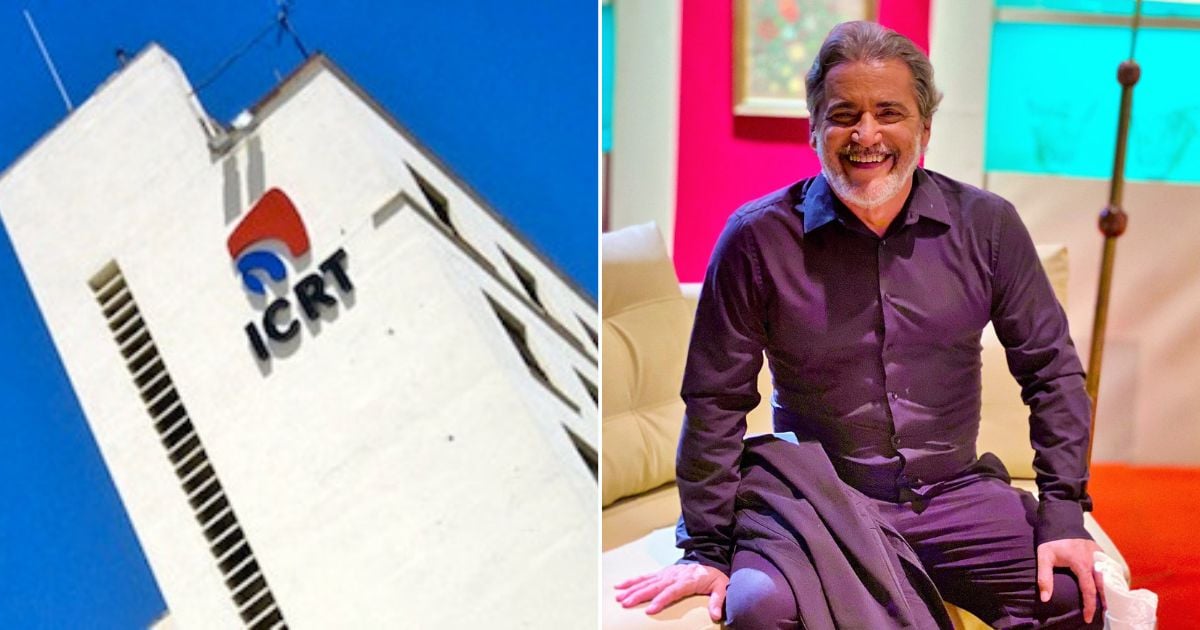Dr. Julio César González Pagés, a prominent Cuban historian and researcher, known for founding the Ibero-American and African Network of Masculinities, has announced his departure from the Cubavisión program "Alerta en Series." This decision followed a notification from the show's management indicating that his proposed topics were deemed "uninteresting." The announcement was made by González himself on his Facebook page, where he detailed that his suggested topics, which included discussions on violence, drug use, inequality, adolescence, and sports, were dismissed by the program's leadership.
Instead, the summer season will feature a different lineup of "political topics" presented by another host, Dr. González revealed. Among the rejected proposals were series like "The Age of Wrath," scheduled for December 2024, focusing on adolescent violence in schools and families, and "The Academy," aimed at the summer of 2025, addressing issues such as individualism, substance abuse, social media bullying, and gender inequality in sports. The controversial series "Adolescence," slated for a December release, was also scrapped.
Rejection and Continued Commitment
González explained that they had submitted detailed outlines, objectives, thematic lines, and lists of knowledgeable guests from various fields and sectors. However, none of these were approved, marking the end of his involvement with the television space. He emphasized that their professional and personal investment only holds value when it serves a purpose, particularly concerning these "woke" topics on national television, which they do not pursue for monetary gain, as the compensation is merely symbolic.
Despite the setback, González affirmed his commitment to continue tackling pressing issues for modern Cuba, such as juvenile delinquency, violence, drug use, and emigration, through his two YouTube channels where the series and materials will be shared independently. "There are always alternatives," he stated, expressing gratitude to the program's production team and those who supported him during the previous two seasons. "See you in the summer on YouTube with an independent presentation under a new name and production team. Thank you," he concluded.
History of Censorship
In another post, González Pagés thanked supporters for their solidarity following his departure and reminded that censorship is not a new practice. He detailed an incident from 2021 when, after the success of the program "Men's Matters," which was filmed with 13 episodes in his home during the pandemic at no cost to the television, he was informed by the then-director of the channel, Rafael Pérez Ínsua, and the main advisor—who also vetoed his current content—that despite the show's success, there would be no second season. The program had reached an estimated audience of six million people with a 90% approval rate but was discontinued to avoid "overloading the channel with that topic."
González stressed that this would be his final statement on the matter and that he does not seek to overturn decisions or demand a review of the criteria. Approaching his 60th birthday, he confessed that he will not return to television hosting due to the stress it causes, clarifying that his involvement was solely out of commitment to urgent matters like juvenile delinquency, drug use, prostitution, gender violence, homophobia, and racism.
"Our commitment is to Cuba, for everyone, and for the benefit of all," he concluded, reaffirming his dedication to advocating for equity and the rights of vulnerable groups from other platforms, supported by professionals free from macho, misogynistic, or discriminatory views.
Broader Context of Media Censorship in Cuba
As 2025 begins, several censorship incidents have been recorded in Cuba's official media, reflecting a growing trend to silence critical or social content. One of the first controversies arose from the unexpected removal of the soap opera "Violetas de Agua" from Cubavisión's lineup, a decision made without explanation that sparked criticism for the lack of transparency and respect for its creators.
In February, filmmaker Pavel Giroud reported that his documentary "The Padilla Case" was banned from institutional spaces. He explained that despite the interest it generated, cultural authorities avoided its dissemination, highlighting the regime's fear of uncomfortable historical reviews or independent narratives. By March, new legal tools were announced that further threaten alternative creation. These so-called "gag laws" allow confiscations and penalties against those who produce audiovisual materials outside the state system, jeopardizing journalists, artists, and cultural promoters working independently.
Recently, another case emerged during a live broadcast when baseball player Omar Ajete was censored during a sports tribute. As he mentioned exiled figures and thanked family members abroad, the audio was cut off, confirming direct censorship even in public, non-political events.
Questions About Censorship and Media in Cuba
What topics did Julio González Pagés propose for his program that were rejected?
Julio González Pagés proposed topics related to violence, drug use, inequality, adolescence, and sports, which were ultimately rejected by the program's management.
Why was the program "Men's Matters" discontinued despite its success?
The program "Men's Matters" was discontinued to avoid "overloading the channel with that topic," despite reaching an estimated audience of six million people and achieving a 90% approval rate.
How does the Cuban government enforce censorship on independent media creators?
The Cuban government uses "gag laws" that allow confiscations and penalties against those producing audiovisual materials outside the state system, threatening journalists, artists, and cultural promoters who operate independently.
